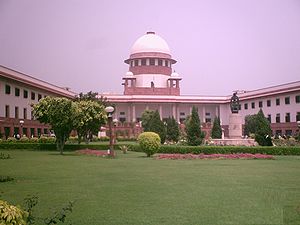
New Delhi, November 15: Buyer of an old establishment cannot be asked to clear the existing electricity dues if he has applied for a fresh power connection, the Supreme Court has held.
A bench of justices P Sathasivam and Ranjan Gogoi, however, said that if the new owner sought transfer of power connection to his name, he would have to clear the dues for the purpose.
The court clarified the legal position while rejecting a plea made by North Eastern Electricity Company of Orissa (NESCO), seeking payment of Rs 79.02 lakh as arrears of dues from M/s Raghunath Paper Mills Private Limited at Balasore for buying factory unit of M/s Konark Paper and Industries Limited in an open auction.
“Section 43 of the Electricity Act, 2003 casts a duty on every distributing licencee, in the case on hand, the appellant, to supply electricity on the application made by the owner or occupier of any premises within one month after receipt of the application. No doubt, it should be only after fulfilling the conditions such as installation of machinery, deposit of security etc,” the court said.
Not for transfer
The Bench found substance in the contention of the buyer company saying that its application was not for seeking transfer of power from a previous owner.
Further, it noted: “The unit was purchased on “as is where is” and “whatever there is” basis after fulfilling all the formalities/conditions and in the absence of any privity of contract between the buyer company and the NESCO, the demand for clearance of arrears of electricity dues is not justified.”
“In the light of sub clause 10(b) of Regulation 13 of the Electricity Supply Code, we hold that the said clause applies to a request for transfer of service connection but not to a fresh connection. The interpretation of this clause by learned single judge as well as by the division bench was correct being reasonable, just and fair,” the court added.





Comments
Add new comment